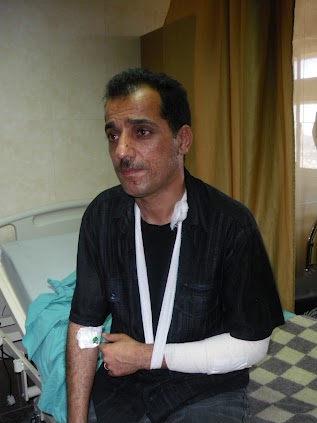Tag: Nablus
-
Hebron: Soldiers invade Kurtuba School, attempt arrest
By Ruby Astaire 26 September | International Solidarity Movement, West Bank Israeli soldiers invaded a Palestinian school in the city of Hebron with intentions to arrest two sixth grade students after false allegations of throwing stones at a nearby checkpoint. Israeli soldiers based in the Palestinian city of Hebron entered the Kurtuba school on Sunday…
-
Israeli Military attempts to crush weekly Kufr Qaddum demonstration, 6 arrested (UPDATE)
By Eva Smith 21 September 2012 | International Solidarity Movement —————————————————— UPDATE 19:25, 23 Sept: Many, many thanks to our Israeli activist friends who have given so much of their time and energy to help us! We would not be able to navigate the legal system as smoothly as possible without their support. British citizens Gordon Bennett,…
-
Settler attack in Aqraba leaves 3 injured, 1 hospitalized
By Ben Greene and Ellie Marton 19 September 2012 | International Solidarity Movement On Monday 17, September, six Israeli settlers from the illegal settlement of Itamar attacked three members of the Benijaber family, who were walking home to the Palestinian village of Aqraba from their olive groves. Maher Hashem Mostafa Benijaber reported that he, his…

